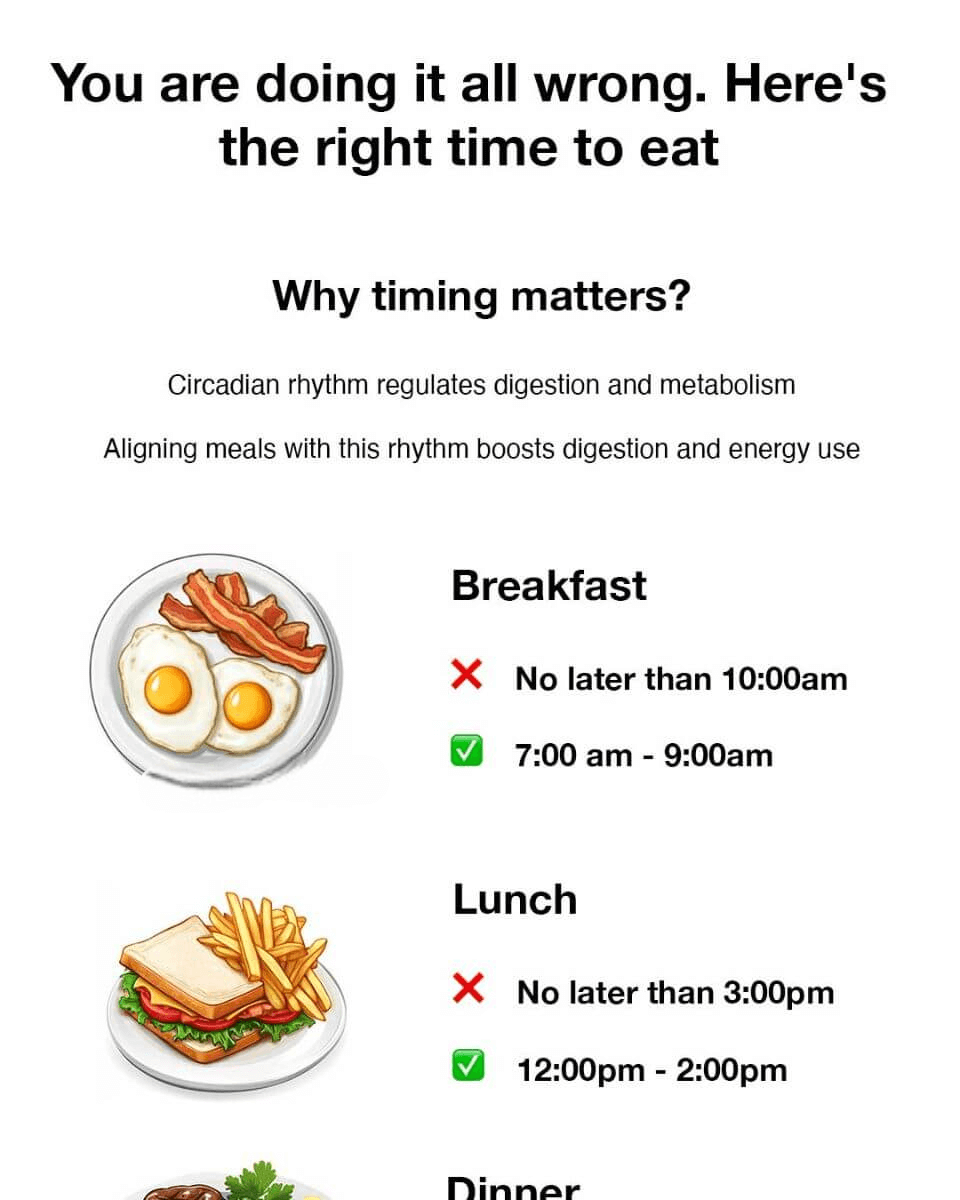In today’s fast-paced world, we often focus on what we eat rather than when we eat. However, the timing of our meals plays a crucial role in maintaining overall health and well-being. Eating at the right times can enhance metabolism, boost energy levels, and even support weight management. Understanding the importance of meal timing can help us make better dietary choices and align with our body’s natural rhythms. This article explores the science behind meal timing and provides guidance on when to eat for optimal health.
The Science Behind Meal Timing: Why It Matters
Our bodies operate on an internal clock known as the circadian rhythm, which regulates essential functions like digestion and metabolism. Eating in sync with this natural rhythm can improve metabolic health and reduce the risk of chronic diseases. Studies indicate that consuming food late at night can disrupt this cycle, potentially leading to weight gain and metabolic imbalances. On the other hand, eating earlier in the day supports our body’s natural processes, leading to better digestion and energy utilization.
The Best Time for Breakfast: Start Your Day Right
Breakfast has long been considered the most important meal of the day, and there’s good reason for that. Eating within an hour of waking up helps kickstart metabolism and provides the necessary energy to begin the day. Ideally, breakfast should be consumed between 7:00 and 9:00 AM. A well-balanced breakfast rich in protein, healthy fats, and complex carbohydrates can help stabilize blood sugar levels and prevent mid-morning energy crashes.
Optimal Lunch Timing: Maintain Midday Energy
Lunch is essential for refueling the body and maintaining energy levels throughout the day. The best time for lunch falls between 12:00 and 2:00 PM. Eating within this window ensures that your body can efficiently process nutrients and helps avoid the dreaded afternoon slump. A well-rounded lunch featuring lean protein, whole grains, and an abundance of vegetables can sustain energy and concentration for the remainder of the day.
When to Eat Dinner: Timing Your Evening Meal
Dinner should be eaten at least two to three hours before bedtime to allow for proper digestion and prevent sleep disturbances. The recommended dinner window is between 6:00 and 8:00 PM. Aligning dinner with the body’s natural circadian rhythm can enhance sleep quality and support metabolic health. A lighter dinner focused on vegetables and lean proteins aids digestion and minimizes late-night cravings.
Snacking: When and Why It Matters
Snacking, when done correctly, can prevent overeating during meals and help maintain stable blood sugar levels. The best times to snack are mid-morning, around 10:00 AM, and mid-afternoon, around 3:00 PM. Choosing healthy snacks such as fruits, nuts, or yogurt provides a quick energy boost without excessive calories. However, it’s important to pay attention to hunger signals and avoid snacking out of boredom or habit.
How Meal Timing Affects Metabolism and Energy Levels
The timing of meals directly impacts metabolism and energy levels. Eating in sync with the body’s natural rhythms can enhance metabolic efficiency and prevent energy crashes. Consuming larger meals earlier in the day and lighter meals in the evening aligns with the body’s energy needs and supports weight management. Proper meal timing can also improve insulin sensitivity and lower the risk of metabolic disorders.
Conclusion: Aligning Meal Timing with Your Health Goals
Adopting the right meal timing can have significant benefits for your overall health and well-being. By adjusting your eating schedule to match your body’s natural rhythms, you can boost metabolism, improve energy levels, and support long-term health. While individual needs may vary, following these general guidelines can help establish healthier eating habits. Making small adjustments to your meal schedule can lead to noticeable improvements in how you feel and function daily. Over time, you’ll develop a routine that enhances both your vitality and overall health.
